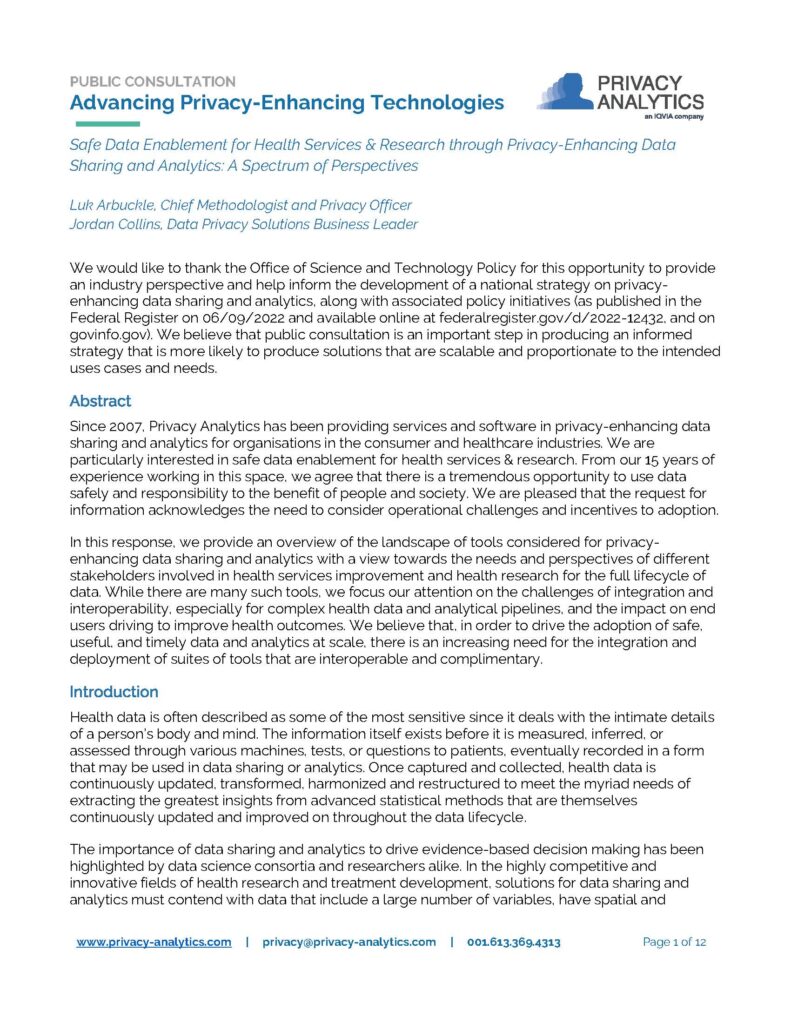The importance of data sharing and analytics to drive evidence-based decision making has been highlighted by data science consortia and researchers alike. In the highly competitive and innovative fields of health research and treatment development, solutions for data sharing and analytics must contend with data that include a large number of variables, have spatial and temporal dependence, and inconsistent or missing data (for example, due to non-response bias in surveys or complex data collection practices and linking challenges). Even static data is refactored and reharmonized to suit the various acrobatics of statistical analysis.
This paper provides an overview of the landscape of tools considered for privacy-enhancing data sharing and analytics. We highlight the needs and perspectives of different stakeholders involved in health services improvement and health research across the full lifecycle of data. While there are many privacy-enhancing tools, we focus our attention on the challenges of integration and interoperability, especially for complex health data and analytical pipelines, and the impact on end users striving to improve health outcomes. We believe that, in order to drive the adoption of safe, useful, and timely data and analytics at scale, there is an increasing need for the integration and deployment of suites of tools that are interoperable and complimentary.
